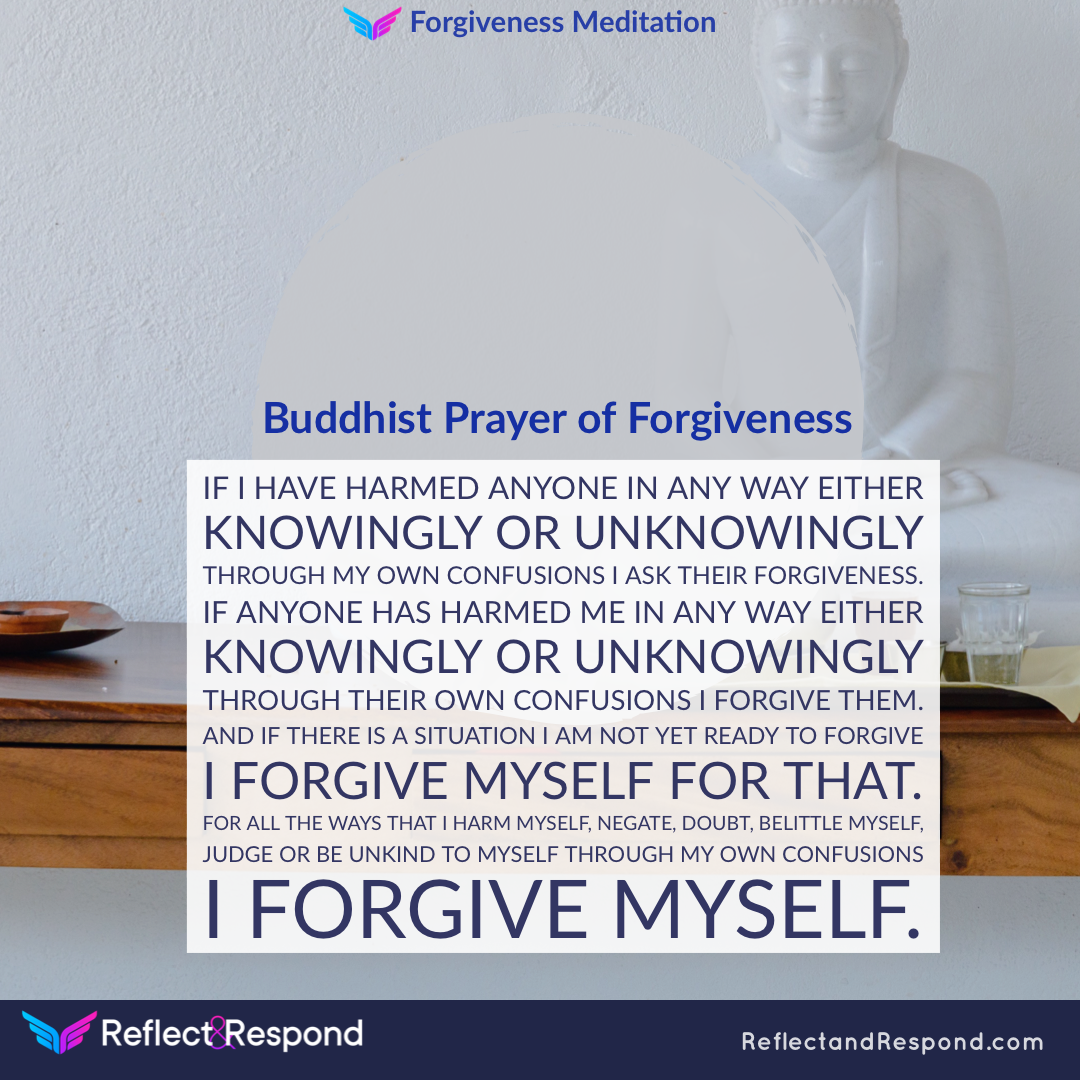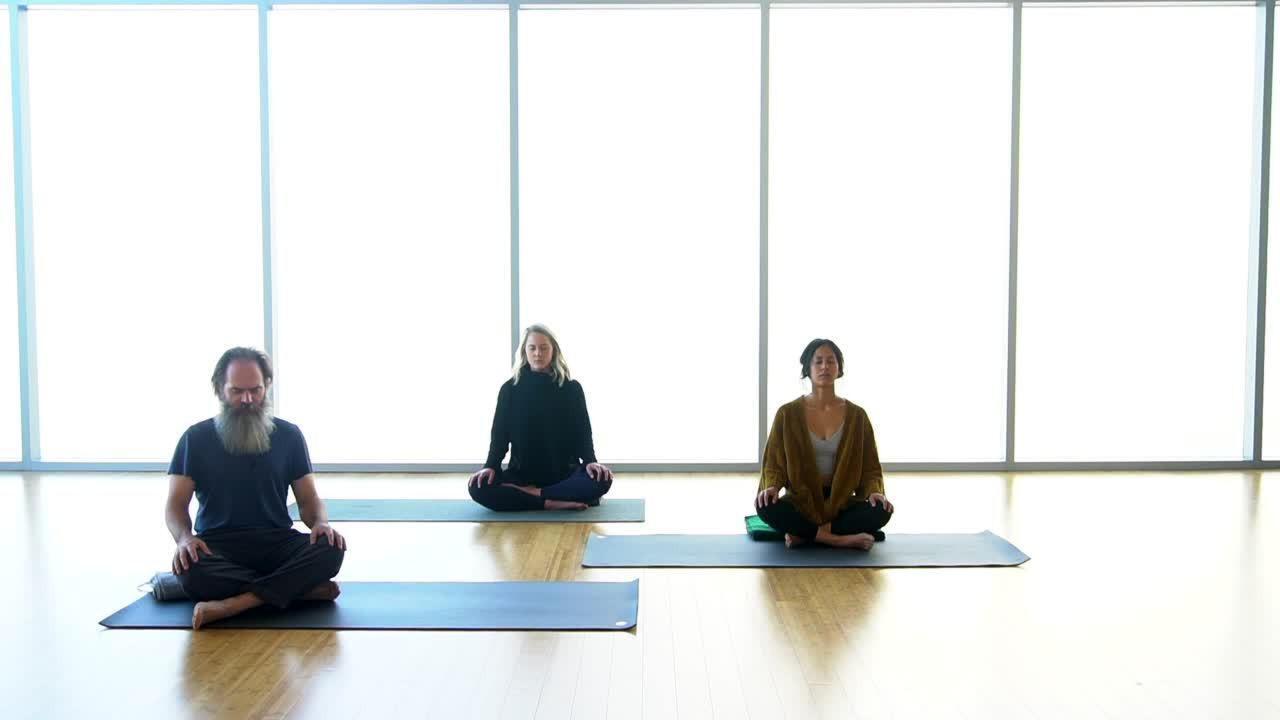Forgiveness meditation offers a powerful path toward inner peace and emotional well-being. This guide delves into the profound practice of releasing resentment and cultivating compassion, exploring the historical context, potential benefits, and practical techniques for integrating forgiveness into your daily life. We’ll examine the intricate process of forgiveness, from understanding the emotional and mental aspects to overcoming obstacles and cultivating self-compassion.
Through step-by-step instructions, various meditation methods, and practical applications, you’ll gain the tools to navigate challenging situations with grace and resilience. We’ll also address common challenges and provide resources for continued learning and support.
Introduction to Forgiveness Meditation
Forgiveness meditation is a practice that cultivates emotional well-being by releasing resentment and negativity associated with past hurts and grievances. It centers on the principle of compassion, self-compassion, and the acceptance of both oneself and others. This approach aims to promote inner peace and positive change by shifting the focus from the perceived offense to a state of emotional equilibrium.The core tenet of forgiveness meditation is not necessarily forgetting the event, but rather transforming the emotional response to it.
This transformation is achieved by acknowledging the pain, understanding its impact, and ultimately, choosing to release the associated anger, bitterness, or resentment. It’s a process of healing and moving forward rather than a simple act of forgetting.
Historical Context of Forgiveness Practices
Forgiveness practices have existed in various cultures and traditions throughout history. Ancient spiritual and philosophical texts, including those from Buddhism, Christianity, and Hinduism, often emphasize the importance of compassion and letting go of negative emotions. These practices evolved from a recognition that holding onto anger and resentment can negatively affect mental and physical health. Over time, these practices have been adapted and refined, leading to the development of various forgiveness techniques.
Potential Benefits of Forgiveness Meditation
Incorporating forgiveness meditation into a daily routine can lead to a range of positive outcomes. Studies suggest that practicing forgiveness can reduce stress levels, improve sleep quality, and enhance overall emotional well-being. By releasing negativity, individuals can experience increased feelings of peace, contentment, and resilience. Furthermore, forgiveness meditation fosters a more compassionate outlook on oneself and others, potentially leading to healthier interpersonal relationships.
Difference Between Forgiveness and Forgetting
Forgiveness and forgetting are distinct processes. Forgiveness involves acknowledging the hurt or offense, understanding its impact, and choosing to release the negative emotions associated with it. Forgetting, on the other hand, often involves suppressing or ignoring the event entirely. Forgiveness acknowledges the event while releasing the emotional burden. Forgetting may seem easier, but it can hinder the process of healing and personal growth.
A healthy approach involves processing the event and emotions associated with it, allowing for personal growth and a greater sense of inner peace.
Different Types of Forgiveness Meditation Techniques
Understanding the different techniques can help individuals tailor their practice to their needs and preferences. The choice of technique will depend on individual experiences and goals. Different techniques offer varying levels of structure and guidance, allowing practitioners to select one that resonates with their personal style.
| Meditation Technique | Description |
|---|---|
| Mindfulness-based Forgiveness Meditation | This approach focuses on bringing awareness to thoughts, feelings, and bodily sensations related to the offense without judgment. The aim is to observe the experience without getting entangled in the emotions. |
| Compassion-focused Forgiveness Meditation | This technique emphasizes cultivating feelings of compassion and understanding towards oneself and the person who caused the harm. It encourages recognizing the potential motivations and circumstances of the other party. |
| Cognitive Restructuring Meditation | This approach involves identifying and challenging negative thoughts and beliefs about the offense. It replaces these negative thoughts with more balanced and realistic perspectives. |
| Gratitude-based Forgiveness Meditation | This technique focuses on appreciating positive aspects of life and recognizing the lessons learned from the offense. It shifts the focus from the negative to the positive, fostering a sense of gratitude. |
Understanding the Process of Forgiveness
Forgiveness is a multifaceted process, encompassing emotional, mental, and even physical responses. It’s not a simple act of letting go, but rather a journey of understanding, acceptance, and emotional regulation. This section delves into the intricate process of forgiveness, exploring the emotional and mental processes involved, common obstacles, and strategies for overcoming them. We will also examine the profound impact forgiveness has on both the mind and body.Understanding the process of forgiveness requires acknowledging the complexity of human emotions.
Forgiveness is not about condoning harmful actions, but rather about releasing the negative emotions that bind us to the past. This release allows us to move forward with greater peace and clarity.
Emotional and Mental Processes in Forgiveness
The act of forgiveness involves a series of emotional and mental shifts. Initial feelings of anger, hurt, or resentment often need to be acknowledged and processed before forgiveness can be considered. This process may involve journaling, talking to a trusted friend or therapist, or engaging in mindfulness practices. The goal is not to suppress these emotions, but to understand and accept them as part of the healing journey.
This understanding leads to a gradual shift in perspective, allowing individuals to detach from the negative emotions associated with the offense.
Common Obstacles to Forgiveness
Several obstacles can hinder the process of forgiveness. These include:
- Unresolved Hurt: Past traumas or unresolved conflicts can make it difficult to move forward and forgive. Addressing these underlying issues is crucial for progressing in the forgiveness journey. A therapist can help in identifying and resolving these deep-seated issues.
- Fear of Vulnerability: Forgiving someone can feel vulnerable, especially if the offense was severe. Overcoming this fear involves recognizing that vulnerability is not weakness but a sign of strength. Acknowledging this allows individuals to embrace the vulnerability inherent in forgiveness.
- Inability to Let Go of Expectations: Holding onto expectations of others can hinder the process of forgiveness. Realistically evaluating these expectations and accepting that people are not obligated to meet them is crucial.
- Lack of Self-Compassion: Judging oneself harshly for not forgiving quickly or easily can hinder the process. Cultivating self-compassion is essential for navigating this challenging process.
Strategies to Overcome Obstacles
Effective strategies for overcoming these obstacles include:
- Seeking Support: Talking to a therapist, counselor, or trusted friend can provide a safe space to process emotions and develop coping mechanisms.
- Practicing Self-Compassion: Treating oneself with kindness and understanding during the forgiveness journey is vital. Self-compassion helps individuals to navigate difficult emotions without judgment.
- Mindfulness and Meditation: Mindfulness practices can help individuals become more aware of their thoughts and emotions, enabling them to detach from negative patterns.
- Journaling: Writing down thoughts and feelings related to the offense can help process emotions and gain clarity.
Identifying and Managing Negative Emotions
Identifying and managing negative emotions is a crucial aspect of forgiveness. Common negative emotions include anger, sadness, resentment, and fear. Understanding the root causes of these emotions is key to managing them effectively. Techniques such as deep breathing exercises, progressive muscle relaxation, and guided imagery can help regulate these emotions. Recognizing the triggers for these emotions allows for proactive management.
Cultivating Self-Compassion During Forgiveness Meditation
Self-compassion is essential during forgiveness meditation. It involves treating oneself with the same kindness and understanding one would offer a friend facing similar challenges. Steps to cultivate self-compassion include:
- Acknowledging Imperfection: Recognizing that everyone makes mistakes and that forgiveness is a journey, not a destination.
- Accepting Emotions: Allowing oneself to feel emotions without judgment, understanding that these are normal responses to difficult situations.
- Practicing Self-Kindness: Treating oneself with the same compassion one would extend to others.
- Developing Self-Acceptance: Accepting one’s strengths and weaknesses without judgment.
Effects of Forgiveness on Mind and Body
Forgiveness has a profound impact on both the mind and body. The mind experiences a reduction in stress and anxiety, leading to increased emotional well-being. The body benefits from decreased levels of cortisol, the stress hormone, leading to improved physical health. This reduced stress allows for a more balanced state of mind and body, fostering overall well-being.
Studies have shown a correlation between forgiveness and improved sleep, reduced blood pressure, and a strengthened immune system.
Practical Techniques for Forgiveness Meditation
Cultivating forgiveness is a deeply personal journey, often requiring dedicated practice and thoughtful techniques. This section will explore practical methods for incorporating forgiveness into your meditation routine, empowering you to navigate challenging emotions and foster inner peace.Effective forgiveness meditation is not merely about forgetting; it’s about releasing the burden of resentment and cultivating compassion. By understanding and applying specific techniques, you can transform negative emotions into a sense of serenity and well-being.
Step-by-Step Guide for Beginners
This structured approach will guide you through the process of forgiveness meditation. Begin by finding a quiet space where you can sit comfortably without distractions. Close your eyes and take a few deep breaths, focusing on the sensation of your breath entering and leaving your body. Acknowledge the feelings associated with the situation you wish to forgive.
Bring your awareness to the person or situation without judgment. Visualize sending love and compassion to the person, acknowledging their humanity and potential struggles. Repeat a chosen affirmation of forgiveness. Conclude by releasing any remaining negativity and feeling a sense of peace.
Comparison of Forgiveness Meditation Methods
Different techniques can be tailored to suit individual preferences and needs. This table Artikels common methods and their characteristics.
| Method | Description | Example |
|---|---|---|
| Loving-Kindness Meditation | Focuses on cultivating feelings of love and compassion towards oneself and others, including the person being forgiven. | Repeat phrases like, “May I be happy, may I be well, may I be peaceful.” |
| Visualization | Involves creating mental images of the situation and the people involved, allowing for a sense of resolution and release. | Visualize yourself releasing negative energy and replacing it with positive feelings. |
| Writing | Using journaling to express emotions and thoughts related to the situation, helping to process feelings and gain clarity. | Write a letter to the person you want to forgive, expressing your feelings and releasing any resentment. |
Breathwork in Forgiveness Meditation
Conscious breathwork plays a crucial role in regulating emotions and fostering a sense of calm. By focusing on your breath, you can anchor yourself in the present moment and reduce stress. Slow, deep breaths can promote relaxation and reduce the intensity of negative emotions, facilitating a more receptive state for forgiveness. Deep inhalation and slow exhalation can be used to gently release negative energy and promote a sense of peace.
Body Scans for Self-Awareness
Body scans can enhance self-awareness during meditation, helping you identify and release physical tension associated with unresolved emotions. This technique involves bringing awareness to different parts of your body, noticing any sensations without judgment. For example, notice any tightness in your shoulders or chest, and consciously release any tension.
Affirmations for Forgiveness Meditation
Affirmations can reinforce positive feelings and intentions related to forgiveness. These statements can be repeated during meditation to cultivate a sense of peace and release.
“I choose to forgive and release the negativity.”
“I am filled with compassion and understanding.”
“I am worthy of peace and happiness.”
Cultivating Forgiveness in Daily Life

Integrating forgiveness into daily life is a powerful practice that fosters emotional well-being and strengthens relationships. By consciously incorporating forgiveness meditation into your routine, you can navigate conflicts more effectively, cultivate self-compassion, and reduce stress. This process involves actively choosing to release resentment and negativity, fostering a more peaceful and fulfilling existence.This section explores strategies for integrating forgiveness meditation into daily routines, addressing interpersonal conflicts, cultivating self-forgiveness, and understanding the impact of forgiveness on stress and anxiety.
Practical examples illustrate how these techniques can be applied in various situations.
Integrating Forgiveness Meditation into Daily Routines
Establishing a consistent practice is key to reaping the benefits of forgiveness meditation. Schedule specific times for reflection and meditation, ideally incorporating it into your morning or evening routine. These dedicated moments can serve as anchors, grounding you in a mindful state and preparing you to approach the day with a sense of inner peace. For example, dedicating 15 minutes each morning for meditation can set a positive tone for the entire day.
Addressing Interpersonal Conflicts Using Forgiveness Meditation
When faced with interpersonal conflicts, forgiveness meditation can be a powerful tool for de-escalation and reconciliation. Instead of dwelling on past grievances, focus on releasing the negative emotions associated with the conflict. Acknowledge the hurt and pain without judgment, and cultivate empathy for the other person’s perspective. This approach can pave the way for healthier communication and more constructive resolution strategies.
For example, if a disagreement arises with a colleague, taking time for forgiveness meditation can help you approach the conversation with a calmer and more understanding mindset.
Techniques for Practicing Forgiveness Towards Oneself
Self-forgiveness is a crucial aspect of emotional well-being. Recognize that everyone makes mistakes. Mistakes are opportunities for growth, not reasons for self-criticism. When reflecting on past missteps, acknowledge the experience without harsh judgment. Focus on learning from the situation and moving forward with compassion and self-acceptance.
For instance, if you feel regret over a past decision, practice self-compassionate meditation to release self-criticism and embrace the lessons learned.
Examples of Applying Forgiveness to Difficult Situations
Forgiveness is not a simple switch; it requires conscious effort and practice. Consider a situation where a loved one hurt you deeply. Use forgiveness meditation to acknowledge the pain while releasing the anger and resentment. Visualize the situation from their perspective and consider their motivations, even if they seem difficult to understand. This process allows you to move beyond the pain and cultivate compassion.
The Role of Forgiveness in Reducing Stress and Anxiety
Holding onto resentment and anger creates a significant strain on the mind and body. Forgiveness meditation, by releasing these negative emotions, reduces the physiological responses associated with stress and anxiety. Studies have shown a correlation between practicing forgiveness and lower levels of cortisol, the stress hormone. This, in turn, leads to improved sleep quality, a stronger immune system, and a more positive outlook on life.
For instance, individuals who regularly practice forgiveness meditation often report feeling less stressed and more emotionally balanced.
Troubleshooting and Common Challenges

Embarking on a forgiveness meditation journey can be a deeply personal and transformative experience. However, it’s crucial to acknowledge that challenges may arise. Understanding potential difficulties and developing strategies to overcome them is essential for sustained practice. This section provides guidance on navigating common obstacles and maintaining a consistent and enriching practice.Navigating the complexities of forgiveness can sometimes prove challenging, and it is important to recognize potential obstacles.
This includes acknowledging the emotional resistance that might arise and working through it. The process of letting go of past hurts and resentments can be emotionally taxing. Addressing feelings of guilt, shame, or inadequacy are part of the journey. Maintaining motivation and adapting the practice to various life situations are equally important for a successful and fulfilling experience.
Identifying Potential Difficulties
The path to forgiveness can be fraught with obstacles. These may stem from unresolved emotional wounds, deeply ingrained patterns of behavior, or a lack of understanding about the process. Identifying these potential difficulties is the first step toward addressing them. This involves introspection and self-awareness. Difficulties might stem from lingering anger, feelings of betrayal, or a struggle to reconcile past experiences.
Recognizing these potential roadblocks allows for proactive strategies to navigate them effectively.
Addressing Resistance to the Practice
Resistance to the practice of forgiveness meditation can manifest in various ways, from a reluctance to confront difficult emotions to a sense of inadequacy in the process. This resistance is a normal part of the process, and understanding its source is key to overcoming it. Acknowledging the emotional discomfort associated with letting go of past hurts can help to manage this resistance.
Engaging in self-compassion and acknowledging the progress made, no matter how small, can help to maintain motivation.
Dealing with Feelings of Guilt or Shame
Feelings of guilt or shame can arise during forgiveness meditation, particularly when confronted with past actions or choices that have caused harm. These feelings are not uncommon. It’s essential to approach these emotions with compassion and understanding. Remember that forgiveness is not about condoning harmful actions but about releasing the emotional burden they place on you. Engaging in self-compassion and recognizing that everyone makes mistakes can help to mitigate these feelings.
Practicing mindfulness and focusing on the present moment can also be helpful.
Maintaining Motivation and Consistency
Maintaining consistent practice of forgiveness meditation is crucial for experiencing its benefits. Establishing a regular schedule and creating a dedicated space for practice can contribute to consistency. Finding a meditation partner or joining a support group can provide encouragement and accountability. It’s also important to remember that progress is not linear. There may be setbacks or moments of discouragement.
Acknowledging these moments and remaining patient with yourself are crucial aspects of maintaining motivation.
Adapting the Practice to Different Personal Situations
The practice of forgiveness meditation can be adapted to suit various personal situations. For example, adapting the duration of the meditation session to fit individual needs can be beneficial. Adjusting the focus of the meditation, such as focusing on a specific relationship or event, can also be helpful. For those dealing with significant trauma, seeking professional guidance or support from a therapist may be necessary.
Flexibility in the practice allows for personalization, ensuring that it remains relevant and effective.
Resources and Further Exploration

Embarking on a journey of forgiveness meditation is a rewarding process, but it’s beneficial to supplement your practice with further resources. This section provides avenues for deepening your understanding and expanding your practice. Exploring diverse perspectives and engaging with supportive communities can significantly enhance your journey toward cultivating forgiveness.
Reputable Books, Articles, and Websites
Numerous resources offer insightful perspectives on forgiveness and meditation. These materials can provide additional context, practical exercises, and varied viewpoints to enrich your practice. Consider exploring books that delve into the psychology of forgiveness, articles that examine different approaches to meditation, and websites that offer guided meditations and supportive communities.
- Books on Forgiveness and Meditation: “The Power of Forgiveness” by Marianne Williamson, “Wherever You Go, There You Are” by Jon Kabat-Zinn, “A New Earth” by Eckhart Tolle, and “The Forgiveness Project” by Dr. Fred Luskin are valuable resources for understanding forgiveness from psychological and spiritual perspectives. These resources often incorporate meditative techniques to foster forgiveness and inner peace.
- Articles on Forgiveness and Meditation: Many reputable publications such as Psychology Today, Harvard Health Publishing, and articles from various meditation websites offer articles and insights into the science of forgiveness and meditation. These resources frequently share research findings and practical advice for integrating these practices into daily life.
- Websites on Forgiveness and Meditation: Websites dedicated to mindfulness, meditation, and personal development often provide guided meditations specifically focused on forgiveness. These websites can offer structured programs, resources, and community forums to support your journey. Examples include Insight Timer, Calm, and Headspace, which often have meditations on forgiveness.
Meditation Apps and Online Resources
Numerous apps and online resources facilitate forgiveness meditation. They offer convenience and structure, potentially fitting into busy schedules.
| App/Resource | Description |
|---|---|
| Insight Timer | Offers a vast library of free and paid meditations, including many focused on forgiveness. It features a user-friendly interface for searching and exploring various guided meditations. |
| Calm | Known for its calming and soothing environment, Calm provides guided meditations, including those specifically designed for forgiveness. Its user-friendly interface and focus on relaxation support a peaceful meditation experience. |
| Headspace | A popular meditation app offering various programs and guided meditations, some of which are focused on forgiveness and related concepts. Headspace’s structured approach to meditation can be beneficial for beginners and experienced practitioners alike. |
| Buddhist apps | Numerous apps, such as the “Insight Timer,” often offer guided meditations and teachings from various Buddhist traditions, which may include practices focusing on forgiveness and compassion. |
Meditation Teachers or Mentors
Experienced meditation teachers or mentors can provide valuable guidance and support. They can offer personalized insights, address challenges, and deepen your understanding of forgiveness meditation.
- Finding a Teacher: Explore local meditation centers, online communities, and meditation teacher directories to identify teachers whose approaches align with your needs and interests. Look for teachers with extensive experience and a strong reputation within the meditation community.
- Finding a Mentor: Seek out individuals who have personal experience with forgiveness meditation and are willing to share their insights and experiences. Look for mentors who can offer personalized guidance and support.
Finding Local Meditation Groups or Communities
Connecting with others practicing forgiveness meditation can create a supportive environment and enhance your experience.
- Local Meditation Centers: Many cities and towns have meditation centers that offer group sessions, workshops, and opportunities to connect with others on a similar path. Searching online for “meditation centers near me” can yield local options.
- Community Groups: Look for local community groups or organizations that incorporate meditation or mindfulness practices. Joining a group provides a supportive environment and fosters a sense of community.
Continuing the Practice
Sustaining the practice of forgiveness meditation requires ongoing commitment and mindful effort.
- Regular Practice: Establishing a consistent practice schedule, even if it’s just for a few minutes each day, is crucial for maintaining momentum and experiencing the benefits of forgiveness meditation.
- Reflection and Journaling: Engaging in reflective practices, such as journaling about experiences and challenges, can aid in integrating the lessons learned from forgiveness meditation into daily life.
- Integration into Daily Life: Applying the principles of forgiveness and mindfulness in daily interactions can strengthen your commitment to the practice and deepen its impact on your life.
Last Point

In conclusion, mastering the art of forgiveness meditation empowers individuals to cultivate inner peace and improve overall well-being. By understanding the core principles, practicing various techniques, and integrating them into daily routines, you can navigate life’s challenges with greater clarity and compassion. This comprehensive guide equips you with the knowledge and tools to embark on this transformative journey, fostering personal growth and fostering positive relationships.